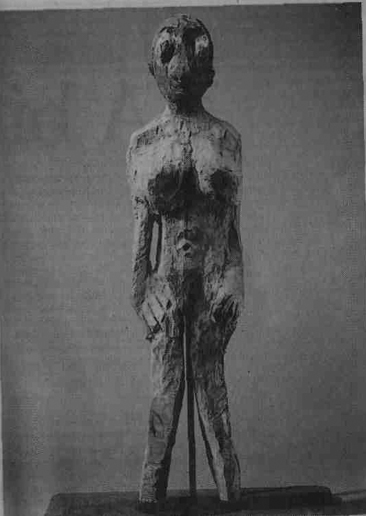Andrew Graham-Dixon reflects on the controversial career of Georg Baselitz in the light of an exhibition of his sculptures
GEORG BASELITZ is popularly known as modern art's Mr Topsyturvy — the painter who, since 1969, has resolutely painted everything on his canvases upside down. It was a controversial deci-sion, but then controversies have been the stuff of Baselitz's career, ever since he was expelled from art school in East Berlin in the mid-1950s for "social and political immaturity".
In the 1960s the painter of, among other works, the intrigu-ingly titled Sex with Dumplings, fell foul of the authorities once more, this time in West Berlin. When Baselitz showed The Grand Night in the Bucket, which de¬picted a priapically endowed young boy apparently masturbat¬ing, the painting was confiscated by the police and presented as ev¬idence in a court action brought against the artist and his dealer for alleged contravention of the obscenity laws. The exhibition was not a success, and Baselitz spent most of that decade living in relative poverty.
Since then, he has become something of an institution. He was swept to international promi-nence in the early 1980s, on the tide of Neo-Expressionism (al-though he has always insisted, perhaps a little perversely, that his work has nothing to do with Expressionist art), and his larger paintings can now sell for up-wards of £100,000. The Saatchis have rubberstamped his art with their approval, collecting heavily. He now lives, like any self-re-specting art world Colossus, in a 100-room castle, in northern Ger-many — with his close-cropped hair, heavy build and beard, Baselitz is perfect material for television, magazines and the col-our supplements.
Like many Berlin-trained art¬ists of his generation, Baselitz has always struck a deliberately com-bative stance in his art. Of the no-torious Grand Night in a Bucket, he once said "I've...


